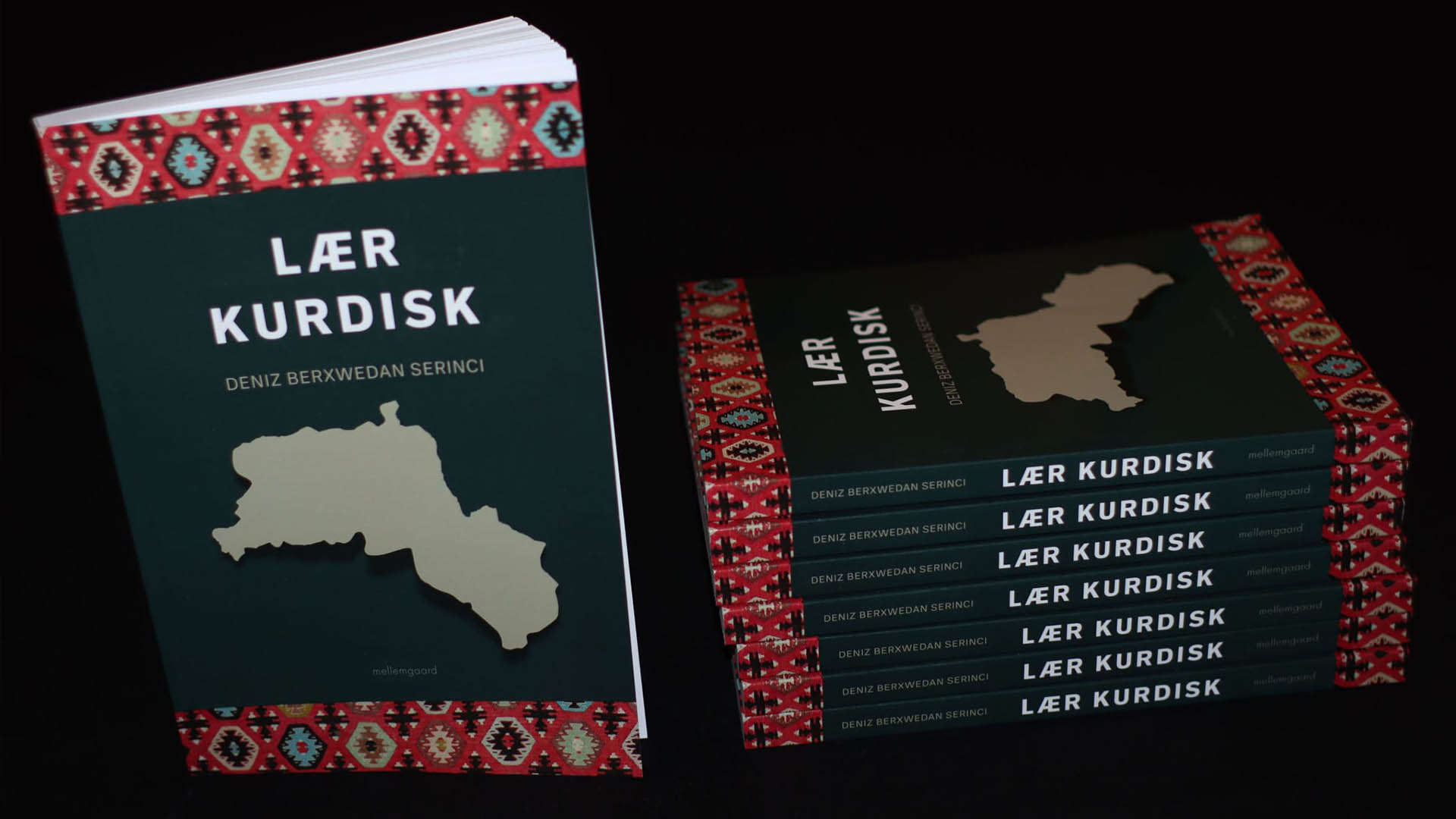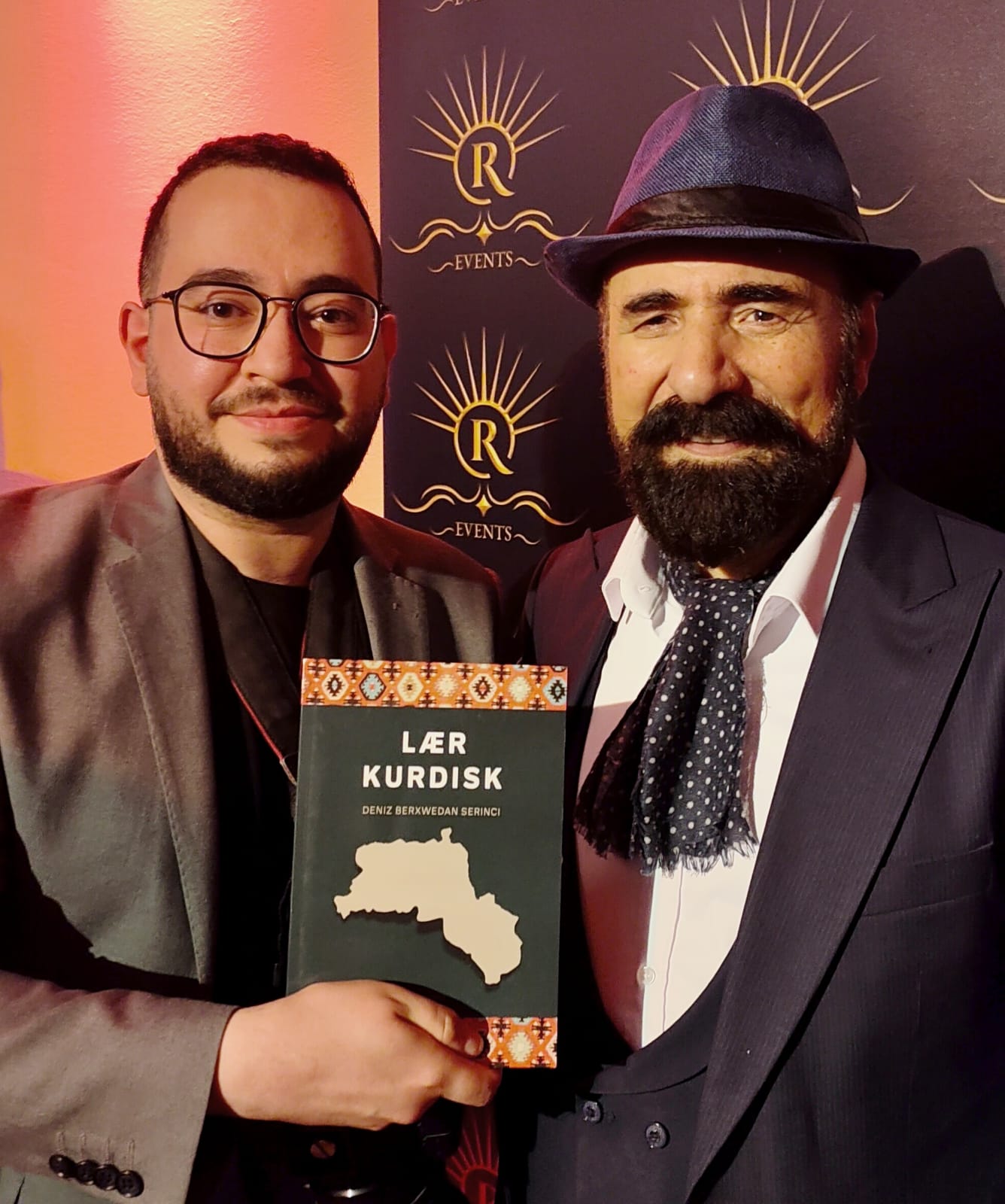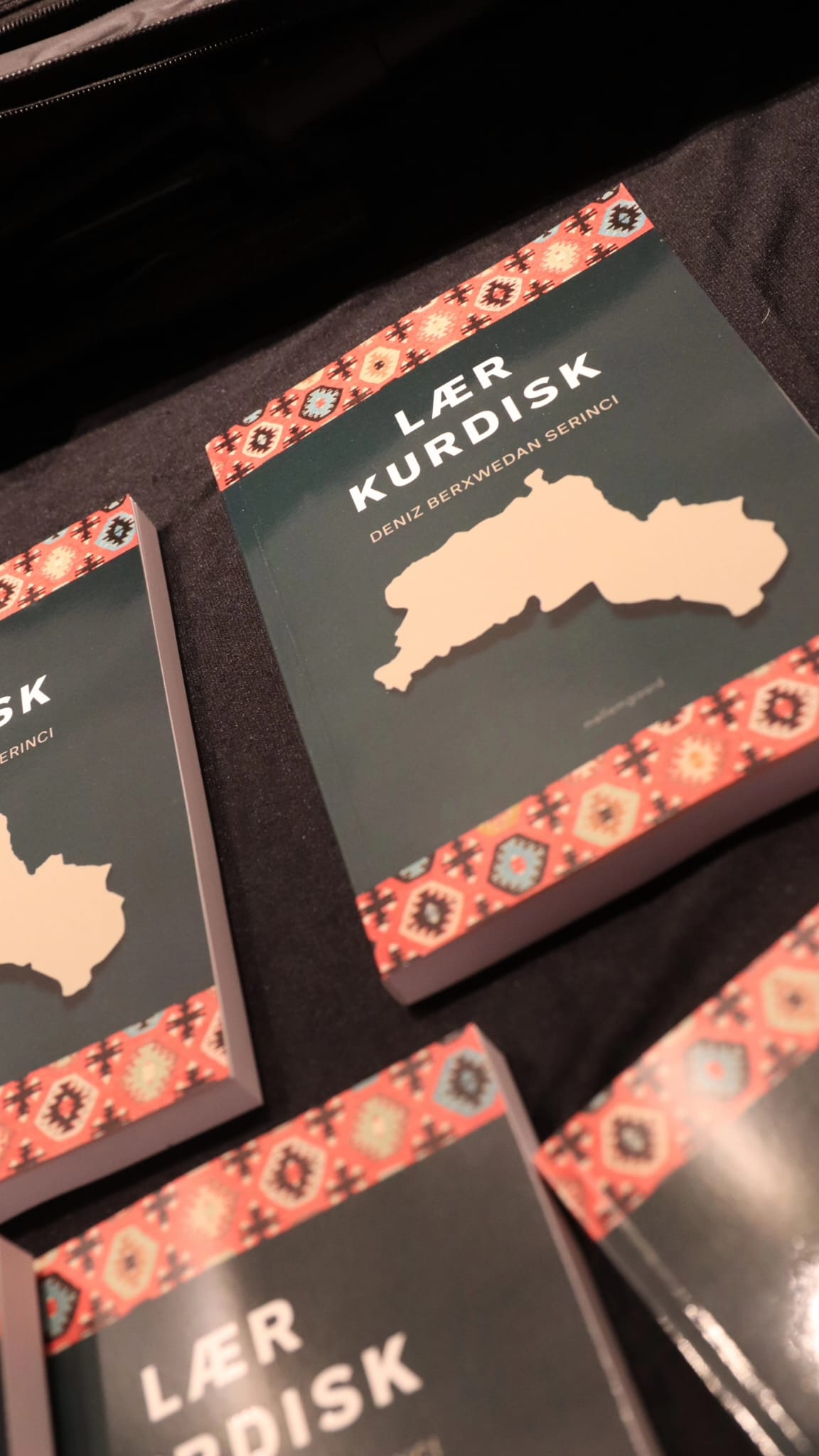Kurdish-Danish Writer Publishes First Kurdish Language Book in Denmark
Kurdish-Danish journalist Deniz Berxwedan Serinci has published Denmark’s first Kurdish language textbook, Learn Kurdish (Kurdî Hîn Bibe), aimed at Kurds and non-Kurds. Drawing on personal experience and cultural activism, Serinci sees language revival as key to Kurdish identity and resistance.

By Kamaran Aziz
ERBIL (Kurdistan24) – In a groundbreaking effort to revive and preserve Kurdish identity among diaspora communities, Kurdish-Danish journalist and author Deniz Berxwedan Serinci has published the first-ever Kurdish language learning book in Denmark, marking a milestone in the cultural and linguistic empowerment of Kurds living abroad.
Titled “Learn Kurdish” (Kurdî Hîn Bibe), the boom is written in both Danish and Kurmanji and is specifically designed for Kurdish refugees, migrants and non-Kurds who wish to learn the language., it is considered the first publication of its kind in Denmark.
Deniz, who was born in Denmark in 1985 to a Kurdish family originally from Çorum in northern Türkiye, revealed that his own journey to learning Kurdish was neither straightforward nor institutional.
For the first 15 years of his life, Deniz believed he was Turkish, a belief shaped by his family’s assimilation and schooling in Turkish and Danish.
“When I was 15 years old, I was shocked to realize that I was not Turkish at all,” he told Kurdistan24. “After 300 years, I began reconnecting with my Kurdish roots, and wanted to learn the Kurdish language.”
With no access to formal Kurdish education, Deniz taught himself the language. “I learned Kurdish through music. Singer Şivan Perwer had a major influence on me. I couldn’t understand the lyrics at first, so I bought cassette tapes and CDs to study the covers. That’s how I started to read and gradually understand Kurdish.”

His language skills further developed through friendships with Kurdish refugees from Urmia, who arrived in Denmark in recent years. “They didn’t speak Danish, and I didn’t speak Kurdish, so we had no choice to choice but to learn each other’s languages,” he recalled.
In 2023, Deniz opened two Kurdish language schools in Denmark’s largest cities, Copenhagen and Aarhus. He personally teaches Kurmanji, while another instructor offers lessons in Sorani.
“Learn Kurdish” includes illustrated dialogues and basic grammatical explanations, gradually progressing from simple phrases to more complex conversations. Each Kurdish word is accompanied by its Danish translation.
The book uses the Kurmanji dialect, which is widely spoken among Kurds in both Kurdistan and Denmark. Deniz also incorporated regional vocabulary from Konya, central Anatolia, to reflect the linguistic diversity among Kurds in Denmark.
A Sorani version of the book is also in the works.
Deniz emphasized the importance of the project and said, “Kurds are one of the largest minority groups in Denmark and have been here for decades. My family came in the 1970s, 55 years ago. It’s time we had a language book for us.”
He added, “Many Kurds do not know their language. My own family couldn’t teach me Kurdish. I want to give that opportunity to others who never had it.”
Beyond the linguistic need, Deniz sees the project as a form of cultural resistance. “Four states have conspired to oppress our language. That’s why we must take stronger ownership of it. Language is our existence, without it, we are lost.”
Despite tens of thousands of Kurds living in Denmark, Kurdish language classes remain under-attended. “Sometimes Kurdish classes are located far from where people live, and they are unwilling to use their weekend time for the courses. Additionally, there is a shortage of qualified teachers with pedagogical training. There are also very few volunteer Kurdish language teachers.”
Deniz offers a simple solution: “If Azad can’t attend a Kurdish class, then the class must come to Azad, through this book!”
Currently, Deniz is also working on a new book exploring the role of Kurdish music in shaping Kurdish identity.
